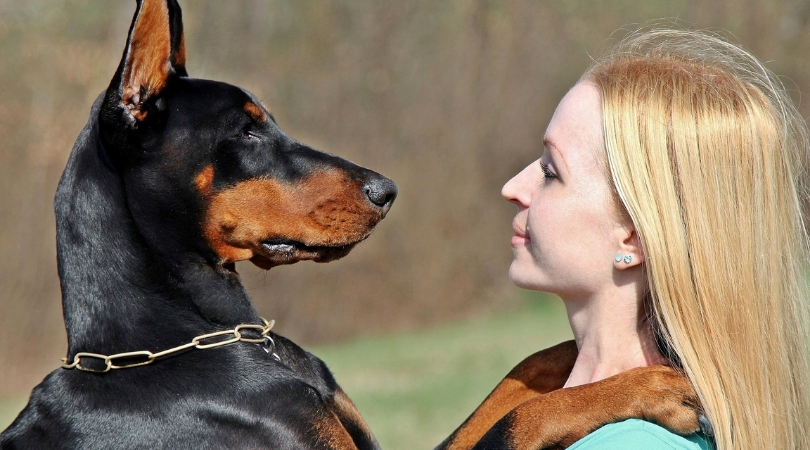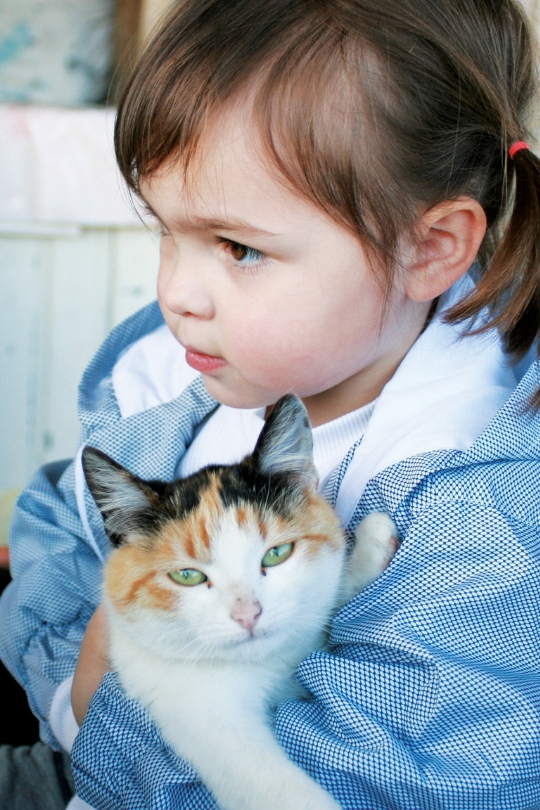National Hug Your Pet Day is April 10th, and while many dogs and some cats do seem to reciprocate the joy and affection a good snuggle is meant to communicate, as you may already know, not all pets like to be hugged. If you want what’s best for your dog or cat, it’s really important that you pay close attention to how your pet reacts to a hug, and if they’re the non-hugging type, this particular holiday might be better left uncelebrated.
Do cats and dogs like to be hugged?
Although humans associate hugs with love and affection, many pets don’t feel the same way. There are a variety of reasons why your cat or dog might not like to be hugged. If you are hugging them tightly, they may feel constrained and unable to move – especially scary if their natural response to a predator is to run away. Or maybe your dog or cat just doesn’t like having its personal space invaded. Lastly, your pet could have an injury you don’t know about, such as an ear infection, pulled muscle, or arthritis – and you could actually be hurting them with your attempt at comforting them.
In an article published in Psychology Today, psychology professor and neuropsychological researcher Stanley Coren argues that most dogs are actually stressed out by hugs. Coren conducted a study in which he analyzed 250 Internet photos of people hugging their dogs, and looked for known signs of anxiety in the dog. According to Coren, 82 percent of dogs in the photos showed at least one sign of stress. About 10 percent of the dogs appeared neutral or showed an ambiguous response toward the gesture, and the remaining 8 percent seemed happy.

Of course, this study was simply observing photos (not live behavior), and there are plenty of exceptions. However, if you want to hug your pet, you should still watch out for any signs of stress.
What are signs of stress in dogs and cats?
If your cat is tense or struggles to get away, he may be telling you he's not a hugger. Look for reactions after you attempt a hug: “If you put your cat down after a hug and she runs away each time she sees you, it is probably an indication that your cat is not appreciative of your hugging affliction.” On the other hand, if he lets you hold him easily and purrs loudly, he's probably very happy for that hug.
If you’re trying to hug your dog, his signs of anxiety could include turning his head away to avoid eye contact, whining or barking, yawning, showing the whites of his eyes, or slicked back ears. If he has an overall relaxed posture and wags his tail, he’s most likely happy to be in your arms.
What if I still really want to hug my dog or cat?
Just like a little kid that doesn’t want to hug their overbearing Aunt Edna, you may think it’s okay to still hug your dog or cat, even if they don’t seem to like it. After all, what harm could a little hug do?
Behaviorists believe that increasing the stress level of your cat or dog could raise their anxiety to the point where they scratch or bite. (This is especially likely if the hugging offender is a child.) Even if they don’t scratch or bite, if your dog or cat is sending you a clear message that they don’t like hugs, why keep hugging them? You don’t want a stressed pet, so try to show them affection in other ways.
Consider celebrating National Hug Your Pet Day in other ways
If your dog or cat doesn’t like hugs, there are many other ways to show them that you love them:
- Socialization and play time – Although your pet may not be the hugging type, they still enjoy your company! You can show them you care by doing a variety of things together, such as snuggling together on the sofa, playing fetch (with dogs AND cats), training sessions (for mental stimulation), going for walks/runs, etc.
- A new toy – Pets are just like people – they love presents! A new toy, scratching post, cat tree, or even a new leash is likely to be much appreciated by your furry friend.
- Treats – But in moderation. Of course, what pet doesn’t love treats? But remember food treats should only be an occasional reward, and should always be pet-approved (that means be careful with that people food!). For more information on good food treats, ask us about our cat nutrition and dog nutrition services.
- Simple pets – Head pats, chin scratches, and belly rubs are all generally “good” types of contact that pets enjoy. But just like with hugs, be aware of your pet’s response to ensure they are comfortable.
- Positive words – Everyone enjoys praise or words of affection. Even if your pet doesn’t exactly know what “I love you” or “good boy” means, they’ll understand the loving tone of your voice.
Can I train my cat or dog to like hugs?
Can you change cat or dog behavior, or help your pet “like” some of the things they don’t like? The short answer is: Sometimes.
You CAN use training sessions, rewards, and counterconditioning to help change your pet’s emotional response to hugs from negative to positive. In fact, it’s a really GOOD idea to train your pet to accept handling of many types. You may never get them from “hating” to “loving” hugs any time soon, but you could make sure your dog or cat doesn’t bite or scratch any overzealous visitors.
April 10th comes but once a year, but now you know how to celebrate your dog and cat year round! Whether you celebrate National Hug Your Pet Day with a sweet embrace, yummy cat treats, or a simple jog through the neighborhood, be sure to tell your favorite four-legged friend how much you love them.

